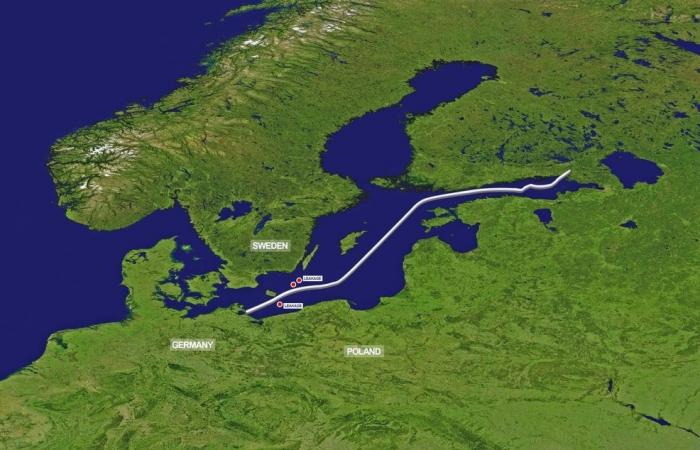
In 2022, a worrying underwater event shook the Baltic Sea: explosions that damaged the Nord Stream gas pipelines, essential for transporting Russian gas to Europe, caused massive methane leaks. Studies published in the prestigious scientific journals Nature and Nature Communications reveal that the quantities of methane released were more than double initial estimates, posing a serious ecological risk.
Underestimated figures
The results of new research based on atmospheric analyzes and satellite images have led to a stunning reassessment of the amount of methane released during the sabotage of the Nord Stream gas pipelines. Initially estimated at around 230,000 tonnes, it now stands at 465,000 tonnes, an alarming amount for climatologists.
These high quantities had been underestimated and were reassessed in three studies published yesterday in the journals Nature et Nature communications. For perspective, these emissions represent approximately 30% of Germany's annual anthropogenic methane emissions, making this incident one of the largest accidental methane releases observed to date.
New measurement methods
The assessment of methane emissions relied on a complex set of methods including direct aircraft measurements, satellite observations and computer modeling. These techniques made it possible to obtain a clearer and more precise picture of the emissions occurring immediately after the explosions.
The technical challenge of measuring underwater leaks has been met through the use of advanced technologies. The scientists used underwater gliders equipped with specific sensors to track methane concentration, which proved crucial in refining initial estimates.
-Significant geopolitical tensions at the origin of the sabotage
Beyond the ecological implications, the Nord Stream leaks occurred in a context of geopolitical tensions exacerbated by the war in Ukraine. Investigations continue into the origin of the explosions, with direct implications for international relations and energy security in Europe.
Responsibility for these acts remains a subject of intense controversy. While kyiv denies any involvement, calling the accusations “absolute nonsense”, Moscow points the finger at acts of sabotage. This situation highlights the fragility of critical infrastructure in the face of political crises and their potential impact on the environment.
A reaction? Leave a comment
Did you like this article? Subscribe to our free newsletter for engaging articles, exclusive content and the latest news.





